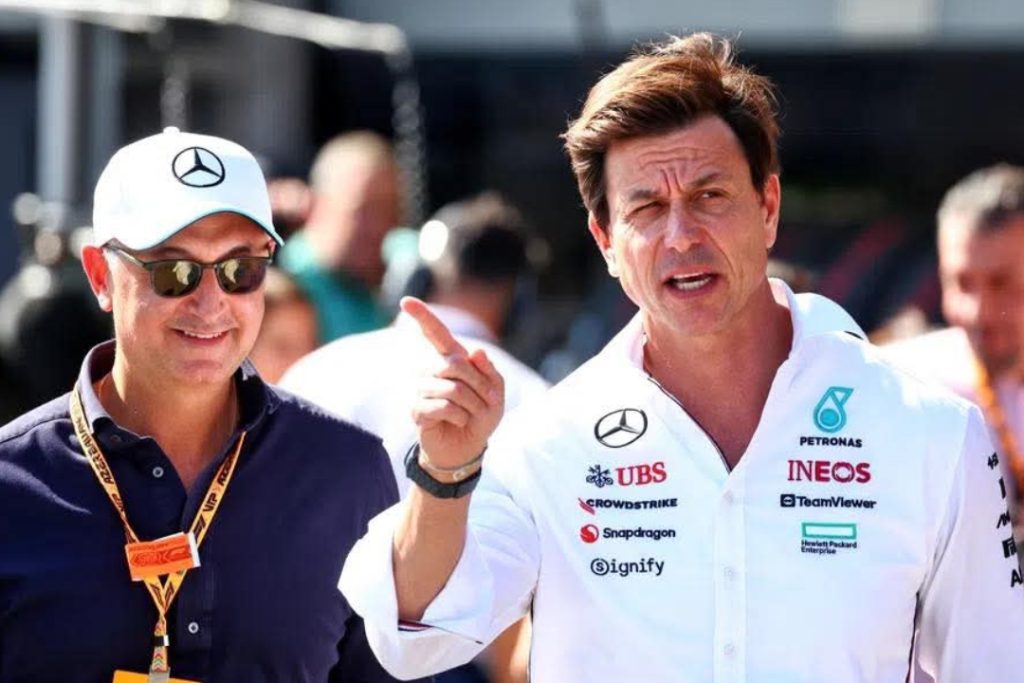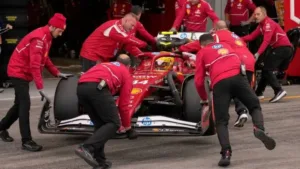JUST IN: Toto Wolff Supports New FIA Penalties: ‘We Have a Responsibility’…read more

Toto Wolff Supports New FIA Penalties: ‘We Have a Responsibility’
Mercedes team principal Toto Wolff has come out in support of the FIA’s decision to introduce stricter penalties for misconduct, including the possibility of deducting championship points. Despite backlash from some fans, drivers, and teams, Wolff believes that Formula 1 has a duty to uphold certain standards of behavior, particularly in how drivers express their emotions during races.
The FIA has recently ramped up its efforts to clean up the language used by drivers, particularly regarding swearing, and this move has sparked controversy. Many within the F1 community feel that penalizing drivers for their language is too strict, as it could stifle the raw emotion that makes the sport so exciting. However, Wolff maintains that a balance must be struck between allowing drivers to show their emotions and ensuring they do so responsibly, especially given the global audience.
“I think we want to see emotions in the car, and there are ways of showing that or not,” Wolff said, acknowledging the importance of drivers expressing their feelings. But at the same time, he pointed out that Formula 1, as a sport, has a responsibility to its audience, which includes a large number of younger viewers. Wolff noted that his own young son has picked up inappropriate language from F1 broadcasts, which reinforces his belief in the importance of managing what is said on air.
“I think also we have a responsibility towards all the spectators,” Wolff emphasized. He believes that as one of the world’s most-watched sports, Formula 1 has an obligation to maintain a level of professionalism and consider how its broadcasts influence viewers of all ages. For Wolff, this isn’t just about policing language for the sake of it, but rather recognizing the wider impact that the sport can have on its global audience.
Wolff also highlighted how cultural differences can play a role in how language is perceived. He suggested that British drivers and fans may not always grasp the severity or nuances of certain words, especially when it comes to swearing. “I believe particularly the non-native ones, the British, often don’t understand how grave or how nuanced the word can be,” he said, implying that what might be considered mild or even acceptable in one culture could be seen as far more offensive in another.
This aspect of the debate is significant because Formula 1 is an international sport, with drivers and fans from all over the world. As such, what is said during races is often broadcast in multiple languages and to diverse audiences. For Wolff, this means that F1 needs to be mindful of these differences and ensure that drivers are aware of how their words might be interpreted by fans in other countries. By introducing stricter penalties, the FIA is hoping to set clearer boundaries for what is acceptable and encourage drivers to think twice before using language that could be offensive or inappropriate.
Despite the criticism that the FIA’s new penalties have received, Wolff believes that the initiative will ultimately bring about positive changes for the sport. “In that respect, I think any initiative is good, and if we stop some of the bad swearing, that’s positive,” he said, making it clear that he supports the FIA’s efforts to improve the behavior of drivers on and off the track.
Wolff’s comments come at a time when the FIA is trying to enforce stricter regulations across several areas of Formula 1. The governing body has been criticized for some of its decisions, with many feeling that the sport is becoming too sanitized. However, Wolff’s backing of the new penalties suggests that there are those within the sport who see the value in maintaining a high level of conduct and ensuring that F1 remains a family-friendly event.
Ultimately, Wolff’s stance reflects a broader concern for the image and integrity of Formula 1. While he acknowledges the importance of drivers expressing their emotions, he believes that they must do so in a way that is respectful and mindful of the sport’s diverse audience. By supporting the FIA’s initiative, Wolff is calling for a more responsible approach to how drivers communicate, both on the track and in public.
As Formula 1 continues to evolve, it’s clear that the debate over how far the FIA should go in regulating driver behavior will persist. But with influential figures like Wolff lending their support, the push for greater professionalism and responsibility within the sport is likely to gain momentum.








